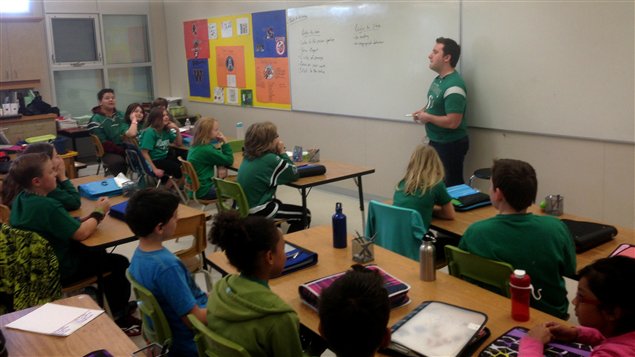More than half a million 15 year-olds from 65 countries took part in the latest Organisation for Economic Co-operation and Development (OECD) education survey. The survey, taken every three years is called PISA- the Programme for International Student Assessment
Tests are done every three years and this year the focus was on mathematics although reading and science knowledge and skills are also tested.
Asian countries occupied the top 7 spots, Canada came in 13th just edging out Poland but in addition to the top 7, Canada came in behind Lichtenstein ,Switzerland, Netherlands. Estonia and Finland in that order.
France came in 25th, the UK, 26th, and the US at 36th spot
In very general terms the test showed a gender gap in that boys tended to be more successful in math, but girls more successful in reading.
The report mentions that Australia, Canada, Estonia, Finland, Hong Kong-China, Japan, Korea, Liechtenstein and Macao-China combine high levels of performance with equity in education opportunities as assessed in PISA 2012.
For this survey, paper-based tests were used, with assessments lasting two hours. In a range of countries and economies, an additional 40 minutes were devoted to the computer-based assessment of mathematics, reading and problem solving.
The tests involved a mixture of multiple choice responses and questions requiring students to write their own answers. The items were organised in groups based on a passage setting out a real-life
situation.
The students also answered a background questionnaire about themselves, their homes and their school and learning experiences.
School principals were given a questionnaire that covered the school system and the learning environment. In some countries and economies, optional questionnaires were distributed to parents, whowere asked to provide information on their perceptions of and involvement in their child’s school, their support for learning in the home, and their child’s career expectations, particularly in mathematics.
Countries could choose two other optional questionnaires for students: one asked students about their familiarity with and use of information and communication technologies, and the second sought information about their education to date, including any interruptions in their schooling and whether and how they are preparing for a future career.







For reasons beyond our control, and for an undetermined period of time, our comment section is now closed. However, our social networks remain open to your contributions.